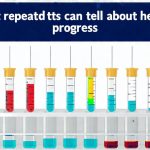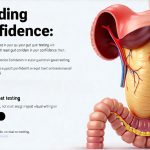Our bodies are remarkably adept at communicating with us, often employing subtle signals to indicate when something is amiss. While we frequently attribute physical symptoms to purely physiological causes – a virus, an injury, dietary indiscretion – the intricate connection between our emotional and physical states means that discomfort can also be a powerful messenger from our inner world. Many experience stomach upset as simply “stress” but rarely delve into why stress manifests in this specific way, or how it’s linked to deeper emotional patterns. This article explores the fascinating relationship between stomach discomfort and emotional imbalance, offering insights into recognizing these signals and potential pathways for addressing them.
The gut is often referred to as our “second brain” due to its extensive neural network – the enteric nervous system – which communicates directly with the central nervous system. This bidirectional communication pathway means that emotions can significantly impact digestive function, and conversely, gut health can influence mood and emotional regulation. The experience of “butterflies” before a public speaking engagement is a well-known example, but chronic emotional distress can lead to more persistent stomach issues, ranging from bloating and indigestion to irritable bowel syndrome (IBS) symptoms. Understanding this interplay isn’t about replacing conventional medical care, but rather augmenting it with a holistic approach that acknowledges the profound impact of our emotional landscape on physical wellbeing.
The Gut-Brain Connection: A Two-Way Street
The gut-brain axis is far more than just anatomical proximity; it’s a complex network involving neurological pathways, immune responses, hormonal regulation and the microbiome – the trillions of bacteria residing in our digestive tract. This intricate system ensures constant communication between the brain and the gut, influencing everything from appetite to mood. When we experience chronic stress or emotional turmoil, this communication can become disrupted, leading to a cascade of physiological changes. For example, prolonged activation of the hypothalamic-pituitary-adrenal (HPA) axis – our primary stress response system – can alter gut motility (the movement of food through the digestive tract), increase intestinal permeability (“leaky gut”), and impact the composition of the microbiome.
These disruptions can manifest as a variety of stomach discomforts:
– Bloating and gas, often linked to altered gut bacteria and impaired digestion.
– Changes in bowel habits – constipation or diarrhea – reflecting dysregulation of gut motility.
– Abdominal pain and cramping, potentially triggered by increased sensitivity due to inflammation or nerve dysfunction.
– Nausea, which can be both a physical response to stress and an emotional manifestation of anxiety.
Crucially, the relationship isn’t one-way. The microbiome itself produces neurotransmitters like serotonin (often called the “happy hormone”), influencing mood and cognitive function. An imbalance in gut bacteria – dysbiosis – can therefore contribute to feelings of anxiety, depression, or irritability, creating a vicious cycle where emotional distress exacerbates digestive issues, which then further fuels emotional negativity. Recognizing this interconnectedness is key to addressing stomach discomfort holistically. Understanding the impact of the microbiome may also help in understanding conditions such as stomach and duodenal diseases.
The microbiome’s influence extends beyond neurotransmitter production. It also plays a role in the immune system, with approximately 70-80% of our immunity originating in the gut. Chronic stress can suppress immune function, making us more vulnerable to illness and exacerbating inflammation within the digestive tract. This inflammation further disrupts gut barrier function and contributes to systemic health problems, highlighting the importance of managing emotional wellbeing for overall physical resilience. Staying hydrated is also vital during times of stress, as outlined in the role of hydration.
Identifying Emotional Roots of Stomach Discomfort
Pinpointing the emotional source of stomach discomfort can be challenging, requiring honest self-reflection and a willingness to explore underlying feelings. It’s rarely about identifying one single cause; more often it’s a complex interplay of past experiences, current stressors, and ingrained emotional patterns. A helpful starting point is keeping a “discomfort journal,” noting when stomach upset occurs, what was happening emotionally at the time, and any related thoughts or beliefs. This can reveal recurring themes and provide valuable clues about potential triggers.
Consider these questions:
1. What situations consistently trigger my stomach discomfort? (e.g., social gatherings, work deadlines, conflict with loved ones)
2. What emotions do I typically experience when my stomach is upset? (e.g., anxiety, fear, sadness, anger, shame)
3. Are there past experiences or traumas that might be contributing to these emotional responses?
It’s important to distinguish between acute stress – a temporary response to a specific event – and chronic stress – a pervasive state of ongoing tension. While occasional stomach upset is normal in response to stressful situations, persistent discomfort suggests deeper emotional issues needing attention. Pay attention to your body’s signals; it’s often trying to tell you something important. It’s also worth considering if acid reflux could be a contributing factor, especially if stress is involved.
Furthermore, consider the possibility that unresolved grief, suppressed anger, or feelings of inadequacy might be manifesting as physical symptoms. These emotions can become trapped within the body, creating chronic tension and disrupting digestive function. Exploring these emotional landscapes – perhaps with the support of a therapist or counselor – is often essential for long-term healing. In difficult times, navigating emotional impact can provide helpful strategies and resources.
The Role of Mindfulness and Somatic Practices
Mindfulness practices – such as meditation, deep breathing exercises, and mindful movement – can be incredibly helpful in breaking the cycle between emotional distress and stomach discomfort. By cultivating present moment awareness, we can learn to observe our thoughts and feelings without judgment, reducing reactivity and fostering a sense of calm. This allows us to better manage stress responses and interrupt the automatic link between emotions and physical symptoms. Simple techniques like diaphragmatic breathing (belly breathing) activate the parasympathetic nervous system – the “rest and digest” branch – promoting relaxation and improving digestive function.
Somatic experiencing is another powerful approach that focuses on releasing trauma stored in the body. This involves gently attending to physical sensations associated with emotional experiences, allowing for a natural release of tension and energy. Unlike traditional talk therapy, somatic practices emphasize experiencing emotions rather than just talking about them. This can be particularly effective for individuals who struggle to articulate their feelings or have experienced early childhood trauma.
There are numerous resources available for learning mindfulness and somatic practices:
– Guided meditation apps (Headspace, Calm)
– Online yoga and movement classes
– Qualified therapists specializing in somatic experiencing or mind-body therapies.
It’s crucial to approach these practices with self-compassion. The goal isn’t to eliminate emotions altogether, but rather to develop a healthier relationship with them – one that allows us to navigate challenging experiences without being overwhelmed by physical symptoms. Frequent yawning can sometimes be linked to stress and GERD, highlighting the complex interplay between body and mind.
Connecting with Your Body: A Pathway to Healing
Ultimately, addressing stomach discomfort as a signal of emotional imbalance requires cultivating a deeper connection with your body. This means paying attention to its signals – not just when it’s in pain, but also when it’s feeling relaxed and at ease. Regularly check in with yourself throughout the day, noticing any sensations or tensions that might be present. Ask yourself: “What am I feeling right now, both physically and emotionally?”
This self-awareness is the foundation for making conscious choices that support your wellbeing. It allows you to identify triggers, manage stress effectively, and prioritize activities that nourish your mind, body, and spirit. Consider incorporating practices like gentle exercise, healthy eating, adequate sleep, and creative expression into your routine. These are all ways of showing yourself compassion and nurturing your overall health. The importance of fiber and hydration should not be overlooked as part of a holistic approach.
Remember, healing is a journey, not a destination. There will be setbacks along the way, but each step you take towards greater self-awareness and emotional regulation brings you closer to lasting wellbeing. If stomach discomfort persists or significantly impacts your quality of life, it’s essential to consult with a healthcare professional to rule out any underlying medical conditions and receive appropriate guidance. This article is not intended as a substitute for medical advice; it’s simply an exploration of the fascinating connection between our emotional and physical states, offering insights into recognizing these signals and potential pathways for healing.


















